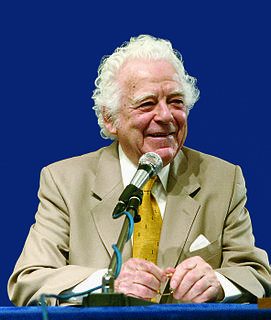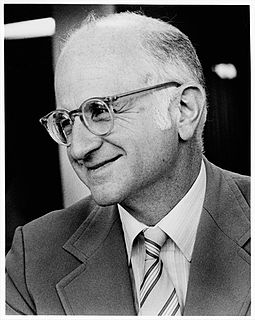A Quote by Beverly Sills
The last major childhood disease remains and it's the worst of them all: nuclear war.
Related Quotes
I think it's going to be remembered as the last major war on planet Earth, if we're lucky, if we maintain our foreign policy properly. It will be remembered as the last time major countries had to put people in the field and put them in harm's way. It may be the last of all human nature wars, which is a nice way to remember any kind of a war, as the last one.
Remember that in any major nuclear war, the first strike destroys the country that attacks; it's been known for years. The first strike of a major power is very likely to cause what's called nuclear winter, leads to global famine for years and everything's basically gone. Some survivors straggling around. Could [Donald Trump] do it? Who knows.
Without a deal [with Iran], the international sanctions regime will unravel with little ability to reimpose them. With this deal, we have the possibility of peacefully resolving a major threat to regional and international security. Without a deal, we risk even more war in the Middle East and other countries in the region would feel compelled to pursue their own nuclear programs, threatening a nuclear arms race in the most volatile region in the world.
So the idea about how detonation of a nuclear weapon might happen vary, you know - some people are especially concerned about terrorists getting their hands on nuclear weapons and using them. Some people are worried that there might be a nuclear war between India and Pakistan. Some think the Middle East, were Israel already has nuclear weapons and where other countries may be interested at some point and acquiring them, might be a flash point.
I voted against the war in Iraq. I voted against the first Gulf War. I think war is the last resort - the last option of a great military power like us. I think that we need to focus on building coalitions. Yes, ISIS must be destroyed. But it should be destroyed by a coalition of Muslim nations on the ground with the support of the United States and the other major powers in the air and in training the troops there.
On nuclear war, actions in Syria and at the Russian border raise very serious threats of confrontation that might trigger war, an unthinkable prospect. Furthermore, Trump's pursuit of Obama's programs of modernization of the nuclear forces poses extraordinary dangers. As we have recently learned, the modernized U.S. nuclear force is seriously fraying the slender thread on which survival is suspended.
The intelligence services would probably be in a better position to make an assessment of the advancement of the Iranian nuclear program than Podhoretz or Ledeen. They don't have access to any specific information. So for them to dismiss it has no great value because they have no authority whatsoever on this issue. For them to push forward with their efforts to get a war started between the U.S. and Iran, you certainly cannot say that Iran does not have a nuclear program. If you say that, then the justification for war has basically been eliminated.



































